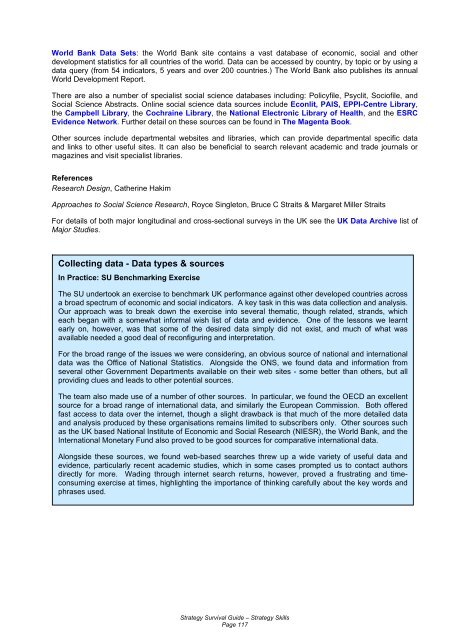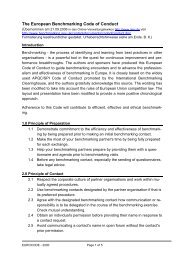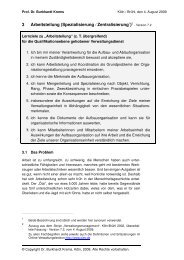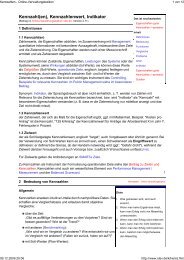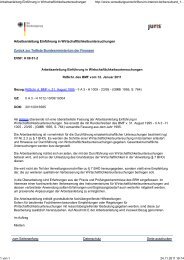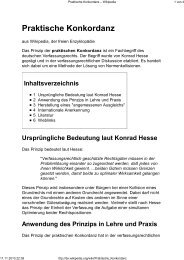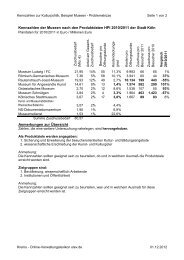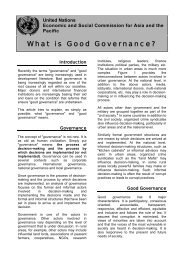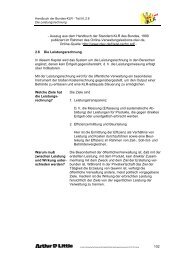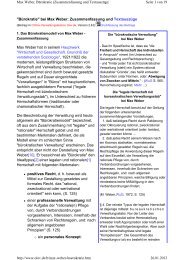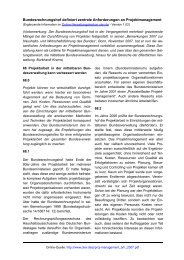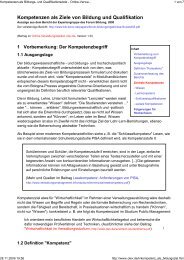Strategy Survival Guide
Strategy Survival Guide
Strategy Survival Guide
Create successful ePaper yourself
Turn your PDF publications into a flip-book with our unique Google optimized e-Paper software.
World Bank Data Sets: the World Bank site contains a vast database of economic, social and other<br />
development statistics for all countries of the world. Data can be accessed by country, by topic or by using a<br />
data query (from 54 indicators, 5 years and over 200 countries.) The World Bank also publishes its annual<br />
World Development Report.<br />
There are also a number of specialist social science databases including: Policyfile, Psyclit, Sociofile, and<br />
Social Science Abstracts. Online social science data sources include Econlit, PAIS, EPPI-Centre Library,<br />
the Campbell Library, the Cochraine Library, the National Electronic Library of Health, and the ESRC<br />
Evidence Network. Further detail on these sources can be found in The Magenta Book.<br />
Other sources include departmental websites and libraries, which can provide departmental specific data<br />
and links to other useful sites. It can also be beneficial to search relevant academic and trade journals or<br />
magazines and visit specialist libraries.<br />
References<br />
Research Design, Catherine Hakim<br />
Approaches to Social Science Research, Royce Singleton, Bruce C Straits & Margaret Miller Straits<br />
For details of both major longitudinal and cross-sectional surveys in the UK see the UK Data Archive list of<br />
Major Studies.<br />
Collecting data - Data types & sources<br />
In Practice: SU Benchmarking Exercise<br />
The SU undertook an exercise to benchmark UK performance against other developed countries across<br />
a broad spectrum of economic and social indicators. A key task in this was data collection and analysis.<br />
Our approach was to break down the exercise into several thematic, though related, strands, which<br />
each began with a somewhat informal wish list of data and evidence. One of the lessons we learnt<br />
early on, however, was that some of the desired data simply did not exist, and much of what was<br />
available needed a good deal of reconfiguring and interpretation.<br />
For the broad range of the issues we were considering, an obvious source of national and international<br />
data was the Office of National Statistics. Alongside the ONS, we found data and information from<br />
several other Government Departments available on their web sites - some better than others, but all<br />
providing clues and leads to other potential sources.<br />
The team also made use of a number of other sources. In particular, we found the OECD an excellent<br />
source for a broad range of international data, and similarly the European Commission. Both offered<br />
fast access to data over the internet, though a slight drawback is that much of the more detailed data<br />
and analysis produced by these organisations remains limited to subscribers only. Other sources such<br />
as the UK based National Institute of Economic and Social Research (NIESR), the World Bank, and the<br />
International Monetary Fund also proved to be good sources for comparative international data.<br />
Alongside these sources, we found web-based searches threw up a wide variety of useful data and<br />
evidence, particularly recent academic studies, which in some cases prompted us to contact authors<br />
directly for more. Wading through internet search returns, however, proved a frustrating and timeconsuming<br />
exercise at times, highlighting the importance of thinking carefully about the key words and<br />
phrases used.<br />
<strong>Strategy</strong> <strong>Survival</strong> <strong>Guide</strong> – <strong>Strategy</strong> Skills<br />
Page 117


